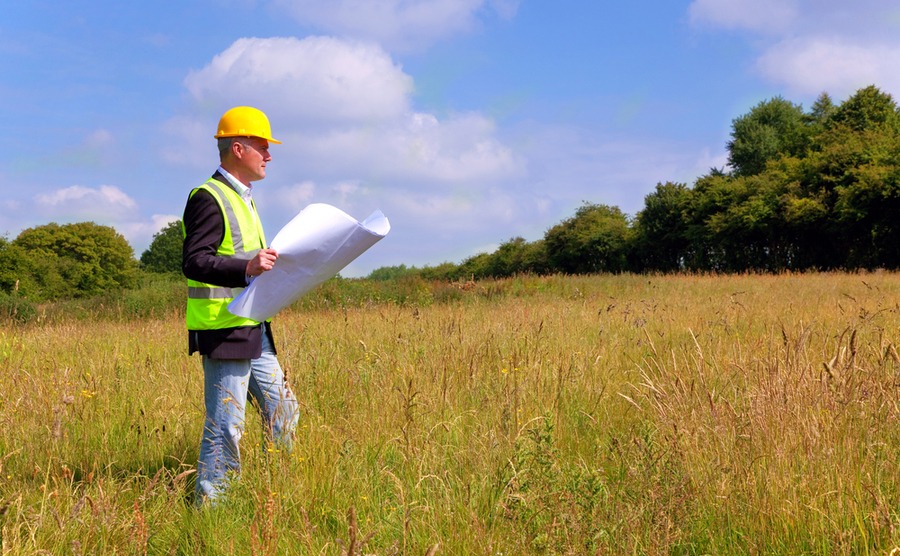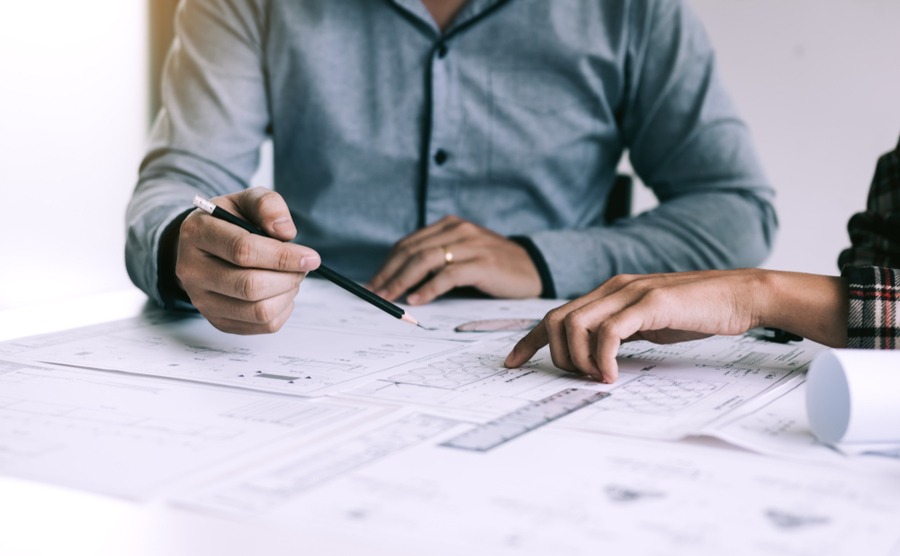If you’re a Grand Designs fanatic like so much of the UK, perhaps you’re considering self-building your perfect home when you move to Ireland – so you can have it exactly how you want. So, today, we’re looking at how to buy land to build on in Ireland, and the major points you need to consider before you embark on a self-build journey.
Am I allowed to buy land to build on in Ireland?
There are no restrictions on foreign nationals buying property or land in Ireland. This means that both EU and non-EU nationals can buy land and property in Ireland without limitation.
Where do I find the land?
There are multiple ways to source your perfect plot. After deciding on a location that suits you, your first step should be to contact local land agents and estate agents to outline your needs and establish whether they have anything suitable on their books. There are also specialist land-finding agencies in Ireland. You can also consult the local council, who will be able to alert you to any land currently for sale, or soon to be for sale.
Learn what questions to ask and how to avoid the legal pitfalls when moving abroad in our Emigration Guide.

Keep an open mind when looking at land to build on in Ireland.
It’s important to keep an open-mind. The perfect plot might have an unsightly property on it, but perhaps it could be knocked down to make way for the property of your dreams.
It’s also a good idea to contact property developers to see whether they have any sites for sale that meet your needs. Developers sometimes offer deals if you buy the plot and have the building work done by them. If this should be the route you choose to go down, make sure your contracts for the sale of the plot and for the building work are separate documents.
Where do I find the experts I need to make this dream a reality?
Asking around for suggestions from local people can often be the best way to find skilled, professional experts when you move to Ireland.
Unless you opt for a developer to build your property, you will need to source an architect who is a member of the Royal Institute of Architects Ireland. A decent architect will also be able to suggest a number of builders, but definitely conduct your own research and source a variety of quotes to ensure you secure a competitive price for the actual build of your property. Ask to speak to past customers and to inspect homes your potential builder has completed.
Get your copy of the Negotiation Guide to make sure you get the best deal possible when buying land to build on in Ireland.
This will help you to establish the facts on how professional they are, and whether they are good at finishing things on time! Your builder should be a member of the Irish Home Builders’ Association. IHBA membership means your builder is automatically registered with Homebond, a scheme that protects you in the event of your builder going bust, major structural defects within 10 years, or water or smoke damage for two years after completion.
Also, you must source a lawyer to help with the legalities of your purchase. They will be able to guide you through the process and check for any restriction, covenants or easements on the title deeds that can affect the usage of the property.
Before you splash out on a plot when you move to Ireland, you must employ the services of a chartered surveyor to confirm the site is suitable to build on. They will be able to foresee any problems, which will help with your decision-making and your budget, such as old foundations, tunnels beneath the site, wells and so on. Any surveyor you employ should be registered with the Society of Chartered Surveyors Ireland.
What factors do I need to consider when buying land to build on in Ireland?
When you move to Ireland to build your property, you should prioritise your location. It’s important to choose a spot that meets your needs. Ensure that the plot is large enough for the project that you want to see to fruition.
Next, establish how the local authority has allocated the land. In Ireland, land is zoned according to whether it’s for residential, commercial, industrial or amenity use. Some plots will be designated for mixed-use, in which case building a home on should be fine. Your buildings plans must be in line with how the plot is zoned to be legal.
Due to the demand for new homes in Ireland, prices have increased significantly in the last few years, but it remains possible to find a plot, build a home and still spend less than you would have done for an existing property.
Additionally, you must check whether there are restrictions on the type of building which may be constructed on the plot. In some areas, for example, there may be limits on the height and size of a building, or how close your potential property is allowed to be to adjacent properties or power lines. Also, have a read of the title documents for the plot to establish ownership and conditions that might scupper your building plans. You can access these title deeds via Land Direct Ireland.

Double-check the quality of any land to build on in Ireland, such as whether the soil will be suitable for construction.
It’s all very well finding a lovely plot of land overlooking a Lough, but if the land isn’t suitable for building on, you will need to back away slowly. If the plot is too steep, the soil is unstable, or there are obstructions that might restrict building, the cost and hassle of sorting out these issues might not be worth your time (or your tears!). Always have a professional assess the soil – if it’s poor quality, it might be impossible (or incredibly expensive) to build on. Remember when Ed Sheeran angered Suffolk with his plans to build a chapel that would wipe out a species of newt? Well, you should check your potential plot isn’t home to any wildlife that could scupper your building plans either. If they are protected, it will cost a small fortune to have them relocated.
The currency markets could easily cause a change in price between you agreeing a sale and paying. Find out how to secure a fixed exchange rate in your free Property Buyer’s Guide to Currency.
Additionally, what kind of access does the plot have to amenities? Is there an airport close by? Schools? A hospital? With rural plots, consider how you will access the property. If you don’t factor this in, or establish an agreement with surrounding landowners pre-purchase, you might end up paying a fortune to the person who owns the stretch of land you need to use as your driveway. Finally, it’s vital to establish whether you are connected to essential services like sewerage, electrics, gas and so on. If not, connection costs should be factored into your budget.
Securing planning permission
As a general rule, Irish planning authorities are keener on granting planning permission to locations that are close to existing services, rather than in very rural locations. This is because the more rural land is developed, the more demand there will be to establish expensive infrastructure to service these areas. Don’t let this put you off though – it is still possible to source a rural plot. Planning permission can be harder to obtain in certain corners of the country. The southwest is notoriously tricky.

Securing planning permission for rural land to build on in Ireland will often be more difficult than near cities and towns.
When applying for permission, you might have to first prove ‘a local need’ or ‘housing need’ to be granted permission. Once you have identified a potential plot that you think might be perfect, set up a preplanning meeting with your local authority. Each local authority has different rules in place. This meeting will help you to understand specific requirements and restrictions and the likelihood of your application going through.
For further advice, speak to your friendly Ireland property experts on 020 7898 0549 or send an email to [email protected].
After establishing it’s a goer, you can bring in your architect or designer to draw up building plans – the more sustainable the design, the better! Always make sure any offer to buy you make is subject to planning permission being granted. This protects you in the event of permission being declined. Your solicitor can help you to navigate this process correctly. Once permission is granted, you have five years in which to complete the build before you will be forced to apply again.
How much will it cost?
Plots of land vary in cost wildly depending on the area. Due to the demand for new homes in Ireland, prices have increased significantly in the last few years, but it remains possible to find a plot, build a home and still spend less than you would have done for an existing property. Prepare for the cost of your plot to account for 50% of your budget. As a general rule, the more land you buy, the cheaper it is! There is no VAT charged on the actual plot of land, but it will be payable at a rate of 12.5 percent on the cost of the building itself. VAT should be included in the quote you receive from your builder. Architects fees tend to be calculated as around 10% of the total cost of the build.
To get help with finding the perfect plot of land to build on in Ireland, fill in our enquiry form below and we will be in touch with free recommendations and advice.






